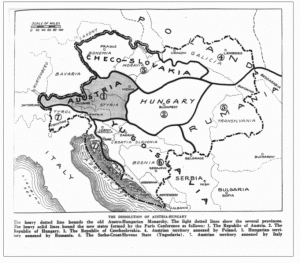June 4 is Applesauce Cake Day
Hug Your Cat Day
Old Maid’s Day
National Eggs Benedict Day
National Cheese Day
On this date in 1411, King Charles VI granted a monopoly for the ripening of Roquefort cheese to the people of the village of Roquefort-sur-Soulzon, as they had been producing it for centuries. Roquefort is known as the “cheese of kings and popes”.
Roquefort is produced from January through July, during the milking period of the Lacaune breed of ewes. It is made with raw milk and must be matured in the famous natural caves of the village of Roquefort, which are perfectly ventilated through natural chimneys called “fleurines”, enabling the blue mold to develop in the cheese paste.
In 1760, New England planters arrived to claim land in Nova Scotia, Canada, which had been taken from the Acadians. Some of the displaced Acadians landed in Louisiana and eventually became known as “Cajuns”.
June 4, 1783 – The Montgolfier brothers publicly demonstrate their montgolfière (hot air balloon).
Captain George Vancouver claims Puget Sound for the Kingdom of Great Britain on June 4, 1792.
June 4, 1794- Congress passed Neutrality Act, which banned Americans from serving in armed forces of foreign powers.
Following Louisiana’s admittance as a U.S. state on April 30th, 1812, the Louisiana Territory was renamed the Missouri Territory on June 4, 1812.
June 4, 1855 – Major Henry C. Wayne departed New York aboard the USS Supply to procure camels to establish the U.S. Camel Corps.
On June 4, 1876 – An express train called the Transcontinental Express arrived in San Francisco, California, via the First Transcontinental Railroad only 83 hours and 39 minutes after leaving New York City.
Henry Ford completed the Ford Quadricycle, his first gasoline-powered automobile, and gives it a successful test run on June 4, 1896.
 Hungary lost 71% of its territory and 63% of its population when the Treaty of Trianon is signed in Paris on June 4, 1920.
Hungary lost 71% of its territory and 63% of its population when the Treaty of Trianon is signed in Paris on June 4, 1920.
In 1937, the first shopping carts were introduced at the Humpty Dumpty supermarket in Oklahoma City, invented by the store owner Sylvan Goldman. With the aid of a mechanic, Fred Young, Goldman designed the first shopping cart based on the folding chair. Wheels were placed where the bottoms of the chair legs were. In place of the chair seat, Young and Goldman, stacked two metal baskets on top of each other. This cart could be stored by folding it up like a folding chair. In 1947, Goldman made a big improvement in the design of his shopping cart with carts that could be stored by simply nesting one cart into another by pushing the front of each cart into the folding back of the one in front of it. This basic design is still in use today.
June 4, 1939: The Motorschiff St. Louis, a ship carrying 963 Jewish refugees, was denied permission to land in Florida, in the United States, after already being turned away from Cuba. They were also turned away in Canada. Forced to return to Europe, more than 200 of its passengers later died in Nazi concentration camps.
June 4, 1940 – The Dunkirk evacuation ends – British forces complete evacuation of 338,000 troops from Dunkirk in France. To rally the morale of the country, Winston Churchill delivered his famous “We shall fight on the beaches…” speech.
